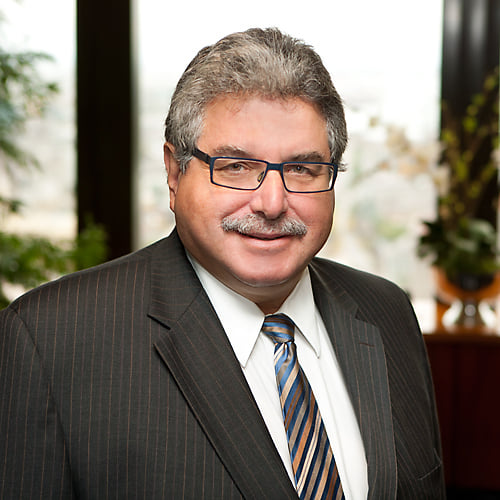MONTREAL- The issues raised by Quebec’s secularism law question the very notion of democracy, in the opinion of lawyer Theodore Goloff who testified at the constitutional challenge to Bill 21.
Goloff represented the Lord Reading Law Society, an association of Jewish legal professionals, during the trial held in Quebec Superior Court over 29 days in November and December.
The law, adopted by the National Assembly in June 2019, prohibits certain public servants in positions of authority from wearing religious symbols such as a hijab, crucifix, turban or kippah while on the job. Public servants, such as teachers, who are already working, can continue wearing religious symbols, but can not be promoted or move to a different institution.
What concerns Goloff most about is the law is its privileging of collective rights over the rights of individuals entrenched in not only by the Quebec and Canadian charters, but recognized by the 1948 Universal Declaration of Human Rights and democratic principles going back long before, including arguably Lower Canada’s political emancipation of Jews in 1832.
The law, officially An Act respecting the laicity of the State, “represents a very slippery slope” toward the erosion of what democracies regard as inalienable rights, said Goloff who gave a virtual talk hosted by Temple Emanu-El-Beth Sholom.
Goloff pointed to the law’s preamble which speaks of balancing the collective rights of the Quebec nation against human rights and freedoms for the sake of the “paramountcy” of state laicity.
“This represents a sea change; in the charters, no right trumps another. Now suddenly we have the notion of collective rights. This makes me tremble,” said Goloff. It reminds him of “the banner of nationalist, collective rights raised” by many countries in the 1930s.
The Coalition Avenir Québec government’s inclusion in the law of the notwithstanding clause to override charter rights is “using the blunderbuss,” to Goloff’s mind.
He expects Justice Marc-André Blanchard to deliver his judgment in the late spring. The case is a consolidation of four separate suits brought by civil rights, Muslim, and teachers groups, as well as a school board.
Whatever the judgment, Goloff is certain the case will be brought to the Quebec Court of Appeal and then likely the Supreme Court of Canada. “I cannot see the Supreme Court ducking these issues.”
Goloff, who has been in practice for more than 40 years, mainly in employment law, is also troubled by the vagueness of the legislation. “Laicity is neither neutrality of the state on religion nor simply secularism. What it precisely is, I do not know yet.”
The law does not specify what constitutes a religious symbol, which means “its application becomes so discretionary it becomes arbitrary,” he said.
He believes that it reflects a French-Canadian Roman Catholic perspective on religion which puts more emphasis on faith than action. “This is problematic for Jews, Muslims, Hindus and many other religions that think it is what you do that is important…(whose) faith is active and open.”
Goloff thinks francophones still cannot accept that “les autres” will not “become like them in every way, shape and form,” and are maintaining – and displaying – their own identity, especially more recent newcomers, such as Muslims.
He compares their expectations to those of his parents, who immigrated from Poland in the 1920s and ‘30s, in the hope of finding freedom.
Goloff wore a kippah when he appeared at the trial, even though he does not normally wear one in public.
“I am who I am and I refuse to become a cookie-cutter. I am a Jew…I wanted the court to understand what that means. I explained that, for Orthodox Jews, it shows humility before the Almighty. I wore it out of respect for my colleagues of every faith.
“What is so offensive about this little bit of fabric?”
Goloff suggests francophone Quebecers, who have mostly welcomed Bill 21 as a final affirmation that they have “thrown off the shackles of the Catholic Church,” ask themselves whether the law is “consistent with the Quiet Revolution, its apogee, or is it rather its renunciation?”
